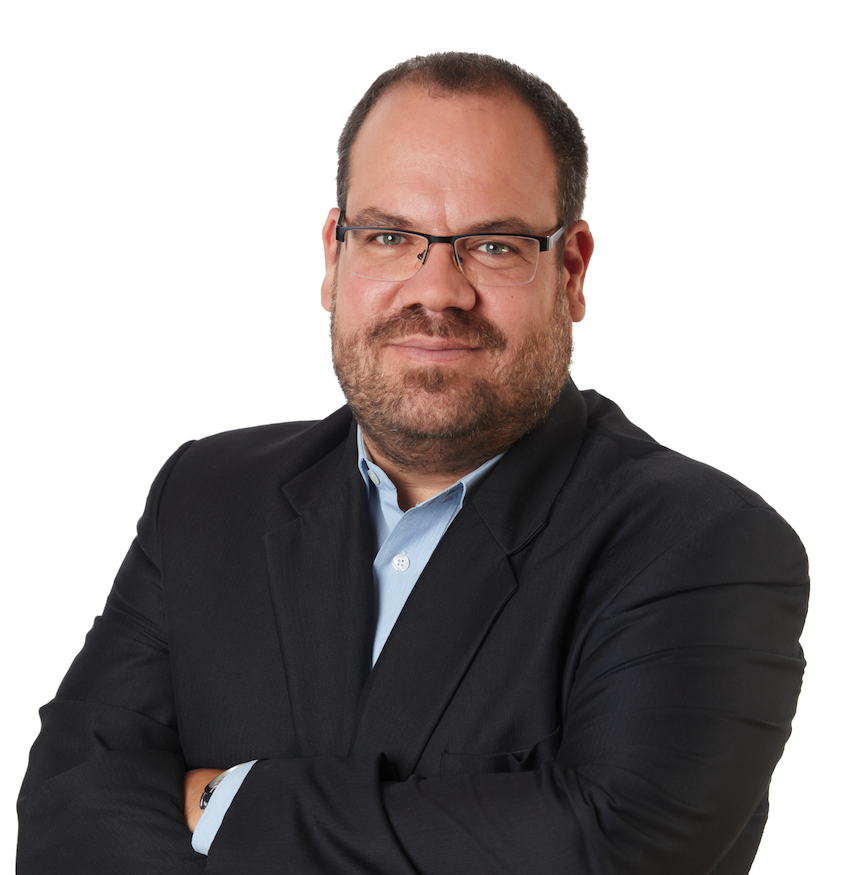Advantages of conducting clinical studies with CROs in Central and Eastern Europe
November 8, 2021 - Interview with Research Professionals’ (CRO) György BARTA who serves as Managing Partner for Research Professionals, a leading GCP complaint CRO. The interview provides insights into potential advantages to conduct clinical studies in the Central and Eastern Europe (CEE) region with Clinical Research Organizations (CROs) like Research Professionals.
 György is a clinical research professional with 17 years industry experience in both CRO and pharma environments. As Managing Partner of Research Professionals (RP), György is responsible for managing the clinical operations teams of RP across all countries covered. Starting his career as a CRA, he advanced to senior leadership positions as a full-service global study manager, managing phase II-III global clinical trials. He is an expert in risk-based monitoring and experienced in leading cross-functional study teams, working in a multinational environment. RP-CRO is a leading GCP compliant CRO based in Hungary with operations in Poland, Czechia, Romania and Bulgaria, serving customers from across Europe and the globe.
György is a clinical research professional with 17 years industry experience in both CRO and pharma environments. As Managing Partner of Research Professionals (RP), György is responsible for managing the clinical operations teams of RP across all countries covered. Starting his career as a CRA, he advanced to senior leadership positions as a full-service global study manager, managing phase II-III global clinical trials. He is an expert in risk-based monitoring and experienced in leading cross-functional study teams, working in a multinational environment. RP-CRO is a leading GCP compliant CRO based in Hungary with operations in Poland, Czechia, Romania and Bulgaria, serving customers from across Europe and the globe.
Q. You are responsible for RP-CRO’s operations in several Eastern and Central European countries. Are there advantages to partnering with a local CRO when conducting studies here?
A. Central and Eastern Europe as a market for conducting clinical research has been building critical mass over the past 30 years and now offers a very competitive clinical research environment when compared to more established western markets. I think our CRO really focusses on meeting the expectations of global customers but still leverages our unique experience in our market to deliver high-quality studies, on time at a great price point. The Central and Eastern European clinical research market has built modern clinical infrastructure, developed leading expertise, and draws upon large available subject pools. All of this has helped us to establish our credibility across Europe and internationally.

Budapest, Hungary

Prague, Czechia

Warsaw, Poland
Q. Warsaw, PolandHow did RP-CRO select Poland, Czechia, Romania and Bulgaria as your countries of operation after you established RP-CRO in Hungary? Are there advantages in these countries?
A. Warsaw, PolandEastern and Central Europe have only had the opportunity to participate in the global clinical trials industry for the last 30 years or so. We looked at other markets in our region that had a clinical research culture and focus on quality that matched with ours. Despite being in different countries, all of them are geographically close to each other which means we can more easily manage communications and coordination between them. They each provide us with access to different subject pools, and some strong medical specialists that serve as our Principal Investigators (PIs) and bring a wide range of expertise. Many of the PIs are not household names in the clinical research space but are all very well established and respected regionally. As we work on more international studies with then I expect their reputations will grow internationally.
Q. How does RP-CRO compare to more established Western countries?
A. One of the largest clinical research markets in Europe is Germany. They have a population of about 83 million people and some large population centres with dense subject pools. When you think about the five countries we operate in, they have a total population of 84 million. Our countries are each smaller but logistically our neighbors are just as close by and as EU member states we don’t have to worry about international custom issues, so the net effect is that our collective market is similar in size to established leaders like Germany. Although each Central and Eastern European country has its own unique history, there are some commonalities that seem to help us to work together easily. We think we have a strong base of clinical research capabilities here and our costs can be an advantage for our customers.

RP-CRO Headquarters, Hungary
Q. How does RP-CRO seem to be able to deliver high enrolments and even over-enrolments for the studies you manage?
A. We continue to see the trend that we can quickly meet and exceed our enrolment objectives in Central and Eastern European countries. Typically, they have large, centralized hospitals in their larger population centres. The large central hospitals typically attract the best and brightest physicians, surgeons and medical staff and match with dense subject pools we can access through our PI network. The subjects also benefit as participating can mean access to new treatments, they wouldn’t otherwise be able to access, and it can mean the best doctors are more accessible when they are part of the study. For some subjects that is a great benefit to them. We can also find PIs for highly niche or specialized studies. We provide support to some PIs who may not have as much experience in running a study, so that they can focus on providing care to the subjects and not be as worried about managing the administrative side of things. That’s where having strong Clinical Research Associates (CRAs) is critical.
Q. Does Central and Eastern Europe have enough good CRAs to run the growing volume of clinical studies you are seeing?
A. The CRAs are the backbone of most clinical studies. I started out as one and I always say that they look after most of the administrative and tedious parts of the study so that the PIs can focus on running the medical side of the studies and looking after the subjects. In some western markets good CRAs are hard to find, but in our markets, we see very low turnover and always have enough highly qualified ones, many with advanced degrees (MDs, PharmDs), to run the studies without delay. For the Central and Eastern European countries CRAs are considered respected professionals and they are relatively well paid. That low turnover means the CRAs bring lots of experience, know the sites well and have good relationships at the site level with the study coordinators. Good CRAs can also support doctors that are newer to being PIs through the clinical trial process. Because the countries are small, we have CRAs able to support multiple study sites which can result in some efficiencies and cost reductions.
Q. How does RP-CRO establish and partner with their network of PIs in each market?
A. RP-CRO knows the countries we operate in. Our focus is finding the most highly qualified PIs for the various specialty areas we need to support in studies. We look for doctors with the best reputations for innovation, quality and excellence. They are typically found in the larger centralized hospitals and institutions and are connected to larger patient pools. Selecting the right PIs is critical to us as they have the ability to recruit the right subjects faster. Their involvement in these studies means they can build on their solid local reputations and are become more well known internationally.
Q. RP-CRO operates from countries within the European Union. What advantages does this bring?
A. Being in the European Union brings us a number of advantages that extend to our customers. Of course, we have the ability to freely move people and materials across the union without having to worry about work permits or customs complications. For example, clinical materials can be shipped to us from an EU manufacturing location and samples can be sent to central lab in another EU country without any delays. Some CROs operating in non-EU jurisdictions have a much more complicated job of getting clinical materials to sites across borders. Another advantage for our customers is that studies conducted in the EU are subject to EMA regulatory requirements and such studies are recognized as equivalent to those conducted in any EU countries. This extends to the Mutual Recognition Agreement (MRA) where other countries like Canada and Australia will recognize the EMA regulatory findings as equivalent to their own. As mentioned earlier we have deep subject pools, experienced clinical research staff and our geographic proximity of locations helps to give us a price advantage over many of our competitors.
Q. How would you compare western European markets to those of Central and Eastern Europe (CEE)?
A. If you compare the CEE to unified markets like Germany, there are a number of differences. The CEE functions using 5-6 different languages which they deal with every day, while Germany operates in one primary language. It means CEE is very used to dealing with multiple languages and is very well versed in dealing with translation and language issues when running studies. We also have a strong understanding of each of the local regulators and how best to work with them. It makes a big difference when you understand the cultural norms of the market. When non-CEE based CROs or freelancers come and set up an office in CEE, they don’t necessarily have the same knowledge or connection with local culture that we do, so they may not prove to be as efficient or effective as they are in their home market. Being based here definitely gives us an advantage.
Q. How do you see the adoption of technologies in the Central and Eastern European (CEE) region going, as applied to clinical research?
A. We have the rapid adoption of many IT technologies that are deployed in leading markets to support clinical research. We find that our staff are very tech savvy as are many of our PIs and CRAs. Younger PIs have lived much of their lives connected online with access to the latest global strategies and best practices. They want to use them in practice. Digital and cloud-based systems have allowed us to enhance our ability to collect, compile and analyze study data efficiently and securely wherever our study sites may be. These approaches also help us to maintain efficiencies while providing the most convenience to our sponsor customers.
Q. You have mentioned that Central and Eastern European (CEE) studies can prove to be lower cost than in other regions. Can you comment on what contributes to this from your perspective?
A. Budget is always a critical point. A study that is conducted poorly negates any price advantage, so our focus is always on the quality of work. However, we do find that studies conducted in the countries where we operate can be priced very attractively compared to larger western markets. Contributors to cost reductions include our dedication to efficiency, establishing strong PI networks able to recruit quickly and of course lower overhead, travel and labor costs. In the CEE the CRO business pays staff and PIs relatively well while complying with the fair market concept so as to not risk the perception of biasing PIs in these countries. Both cost of clinical space and services can be much higher in western markets. In our view working with a CEE CRO brings you the best of both worlds. You can access a well trained and experienced workforce, a strong network of dedicated PIs, accelerated recruitment from deep subject pools, credible study standards under GCP and EMA regulations and a potentially lower cost. We believe RP-CRO has been able to build an organization that adheres to the highest global standards for CRO services while at the same time offers the greatest value to its customers. That has been possible because of the advantages of being a Central and Eastern European (CEE) based CRO.